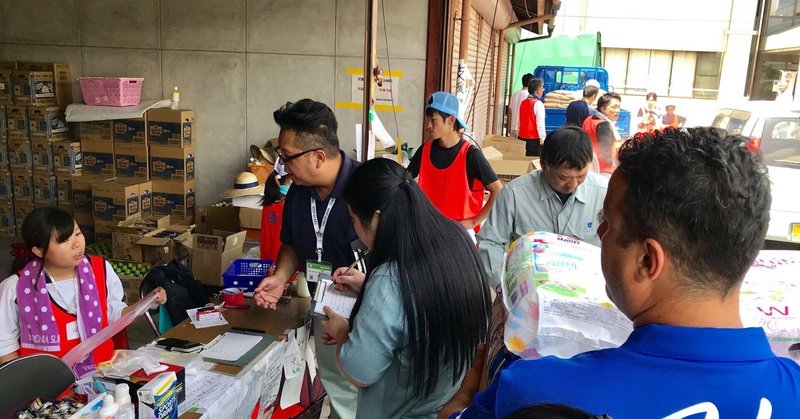
09 Administration Services for Diverse Residents!
Kofi is a Ghanaian single father of two children. His Japanese ex-wife, Yumi, left home some years ago, saying that she did not want to be tied to a life with husband and kids. Through her parents, Kofi asked her many times to come back, but eventually, he asked for a divorce settlement, knowing her determination was firm. As a result, Kofi was granted parental rights including custody. Kofi reaffirmed his determination to talk with his children and take care of them more than ever so that they would not feel lonely for having only their father at home.
Kofi works at a can processing factory. His work hours are 8 am to 6 pm. He wakes up at 5 am to prepare breakfast, wakes up his children at 6:30 am, feeds them breakfast, and leaves home for work past 7 am. He takes a 30-40 minute bicycle ride to the factory.
Kofi has already spent 20 years in Japan. He worked hard to learn Japanese after he came to Japan. He has no problem with daily communication, but understanding official documents from the municipality office about taxes or subsidies for childrearing is difficult. It was Yumi who used to deal with those documents. Now he shows those documents to his eldest daughter, and when she cannot understand, he takes them to his factory to ask his boss for help. But it is a bit uncomfortable for him to show documents pertaining to home-related matters to his boss.
His eldest daughter, Lina, is now in the third grade of junior high school. Since her mother left home, she has not been willing to talk with Kofi as much, and recently, even stopped going to school. Kofi wants to discuss her situation with her teacher, but having no idea what – family, study, or relationships with her friends – is troubling Lina, he feels hesitant to talk with her teacher.
When the Great Eastern Japan Earthquake occurred on 11 March 2011, Kofi was working at the factory. As his boss urged him to go home, he rushed home on his bicycle. Fortunately, the children were safe at home. However, watching TV reports on the destruction caused by the earthquake and the effects of radiation, he was filled with fear and concern. When his children asked him about the radiation, Kofi could not give them an answer or even get information, making him feel sad and helpless. Kofi hopes to take good care of his kids and tell them about society. However, it is too difficult for him to do that all by himself.
▶ Official documents in multiple languages, placement of multicultural social workers, and participation of migrants in government
Migrants living in Japan face various problems due to differences in language, culture, working conditions, family, and residence statuses. Even finding out where to consult to solve each problem is not easy.
Administrative offices of local municipalities have different consultation counters for different issues, and the documents and consultations provided by those counters are usually in Japanese only. If those local municipality services are for all residents, all the documents provided by those service counters should at least be prepared in multiple languages.
Some administrative offices make interpreters available every day, but their numbers are not adequate. Additionally, though the interpreters can provide support for communication with the administrative staff, that support does not go beyond interpretation. Complex multifaceted cases require so-called multicultural social workers who are sensitive to cultural differences and social backgrounds and can consult with migrant residents and prepare comprehensive support plans.
Migrants are members of the local community. Some local municipalities have set up organizations such as foreign resident representative consultation meetings where participants share information on the problems faced by migrants and discuss plans for developing a multicultural society. Such meetings play important roles in bringing the voices of migrant communities to the local government. On the other hand, it has been pointed out that issues discussed at such meetings tend to be limited because only certain kinds of migrants are able to participate. Thus, for local administrative services to better respond to diverse residents, it is important to ensure that migrant residents are able to participate in the decision-making processes of local governments in the same way as Japanese residents. In this sense, there are limitations to consultative organizations aimed solely at the representatives of migrants. Therefore, it is necessary to realize the right of migrants to be employed as public servants without any limitations, as well as their suffrage in local elections.
この記事が気に入ったらサポートをしてみませんか?
